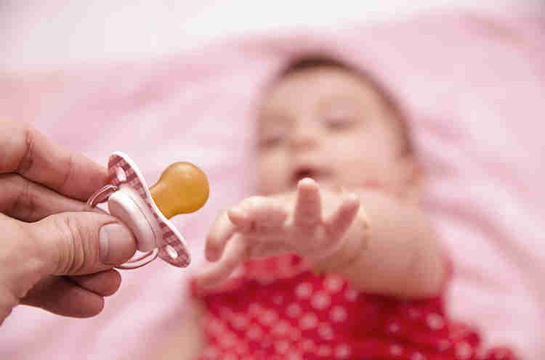When should you introduce a pacifier?
The decision to use a pacifier — or not — is up to you. Consider the do's and don'ts of giving your baby a pacifier, and how to help him or her break the habit.
Most babies have a strong sucking reflex. Some babies even suck their thumbs or fingers before they're born. Beyond nutrition, sucking often has a soothing, calming effect. That's why many parents rank pacifiers as must-haves, right up there with diaper wipes.

Pros: For some babies, pacifiers are the key to contentment between feedings. Consider the advantages: A pacifier might soothe a fussy baby. Some babies are happiest when they're sucking on something.A pacifier offers temporary distraction. A pacifier might come in handy during and after shots, blood tests or other procedures.
Cons: Your baby might become dependent on the pacifier. If your baby uses a pacifier to sleep, you might face frequent middle-of-the-night crying spells when the pacifier falls out of your baby's mouth.Pacifier use might increase the risk of middle ear infections. However, rates of middle ear infections are generally lowest from birth to age 6 months — when the risk of SIDS is the highest and your baby might be most interested in a pacifier.

